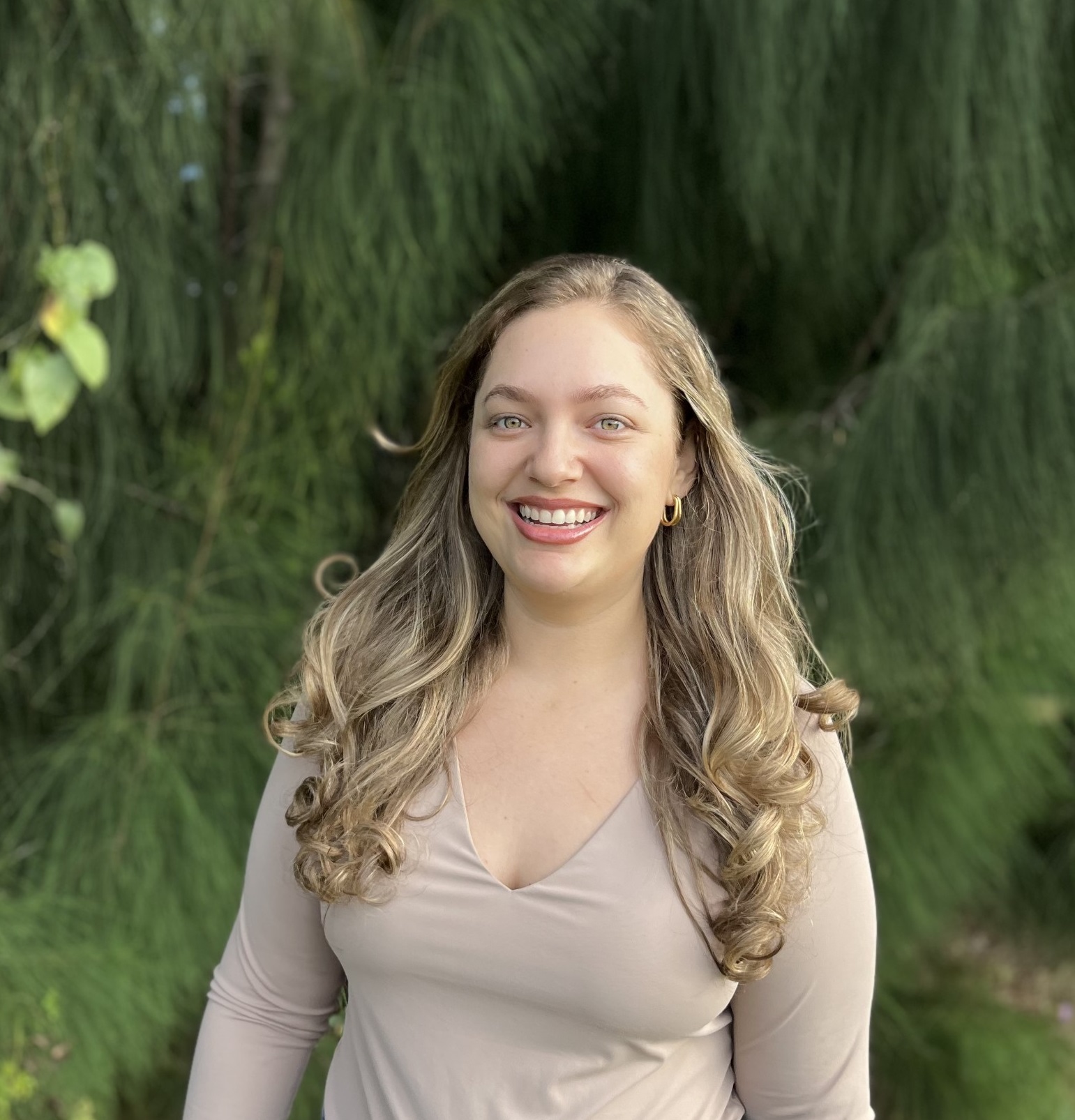
Blaire Kleiman
Originally from Miami, Florida, Blaire Kleiman obtained her Bachelor of Science in Environmental Studies from the University of Central Florida. As an undergraduate, she began her interest in insects and pollinators as a volunteer in the Barbara Sharanowski lab at UCF. Following this, she worked as a Biocorps Fire Effects Monitor in Everglades National Park, conducting post-burn assessments in the Pine Rocklands and across the park, endangered butterfly monitoring, and assisted various park scientist's research. Afterwards, she worked as a research assistant to an FIU PhD student in the Plant-Ecology lab, at UF TREC and mango farms conducting research on plant-insect interactions of vegetable and fruit crops with a native insectary plant, Senna mexicanna. In the fall of 2019, she began her Master of Science in Environmental Studies in the Agroecology program with Dr. Krishnaswamy Jayachandran, Dr. Suzanne Koptur and Dr. Cara Rockwell. Her thesis research was on the weed-insect interactions in mango, Mangifera indica, farms in Homestead, FL. She also worked on Dr. Rockwell's EPA funded research assessing biodiversity of plants and insects in The Education Fund established food forests in Miami-Dade County Public Schools. Her research interests are in agroecology, insects, weeds, native plants, and plant-insect interactions. As a result of her masters research, she conducted outreach with local farmers, presented results at national conferences, and published 4 scientific papers as first author. Many mango farmers in South Florida now have adopted practices to use wildflowers in their farms to support pollinators and are seeing significantly greater pollination and fruit yields as a result. Following her masters, her work now as a PhD student is focusing on how climate change-related conditions may impact squash (Cucurbita pepo) crop-pollinator systems by studying the plant and pollinator response to heat stress, their interactions, and the importance of pollinators in relation to changing climates and environments. This research will provide much needed information on the influence of heat on plant-pollinator mutualistic relationships in the tropical growing region of the United States, where extreme heat waves are already the norm. With support of the FIU Agroecology Program, funding support from the United States Department of Agriculture Sustainable Agriculture Research and Education Program, the Miami-Dade County Extension Office, and local farming organizations, this project will be shared as part of a collaborative effort to promote alternative management practices for sustainable farming in the region.
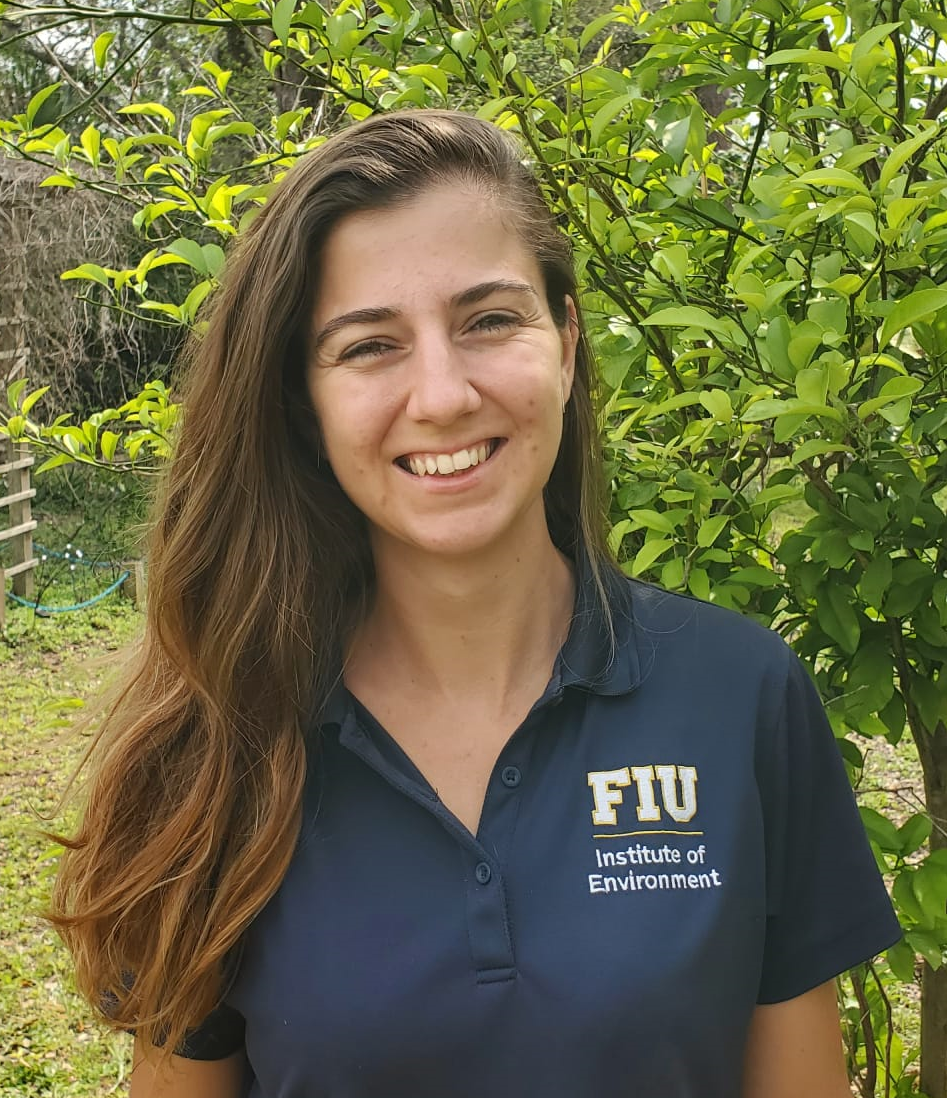
Érika Rocha Guimarães
Érika R. Guimarães, inspired by her family's subsistence farming background in Brazil, pursued a Bachelor of Science degree in Environmental Engineering at the Federal University of Rio de Janeiro, where she had the first contact with the formal concepts of agroecology and permaculture. After moving to Miami in 2019, she volunteered on USDA and EPA-funded projects related to environmental education and urban food forests, leading to her co-authorship of a booklet (Common Tropical Food Forest Plants of South Florida) and a peer-reviewed publication (Species Richness, Stem Density, and Canopy in Food Forests: Contributions to Ecosystem Services in an Urban Environment). Currently pursuing a Master of Science degree in Environmental Studies at Florida International University, her research, funded by the Florida Forest Service, involves mapping plant species in 23 food forests across Florida and exploring the perspectives of food forest managers. Erika's interest lies in food forestry systems in urban areas, particularly food deserts, and she plans to develop recommendations and educational materials for tree-based food production systems, such as the recently released ArcGIS Story Map (Food Forests in Florida - arcgis.com).
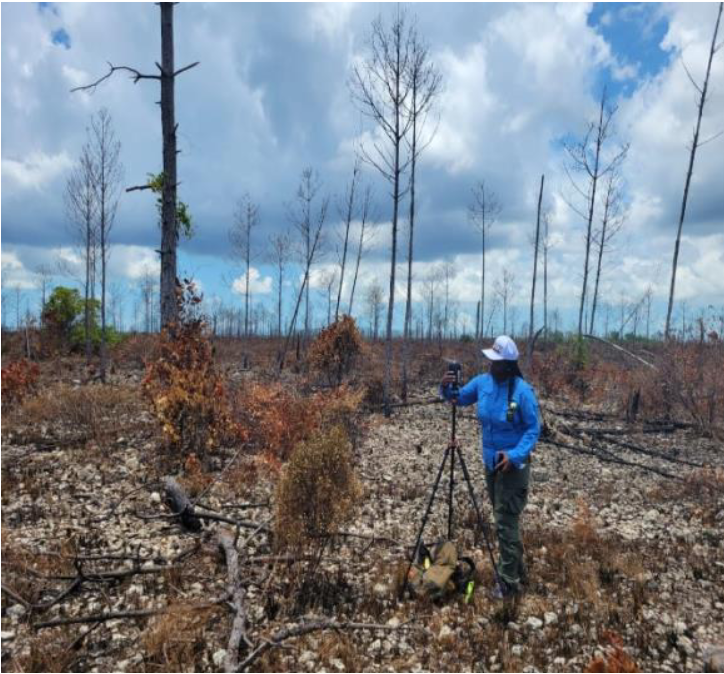
Laytona Williams
Latonya is from Nassau, Bahamas and currently a Graduate Research Assistant for the Abaco Advanced Ecosystem & Landscape Monitoring project being funded by the US Department of Agriculture. She is also completing her MSc in Environmental Science in the Department of Earth & Environment. Latonya graduated from the University of The Bahamas in 2022 with a BA in Small Island Studies with focus in Ecotourism Development, and an AA in Geography in 2010. Her overall aspirations centers on mitigating the negative impacts of human activities and climate change on terrestrial ecosystems, through sustainable land/forest management. Her current research interests focuses on human ignited fires within the Wildland Urban Interface (WUI)-the area where settlement is adjacent or intermingles with wildland vegetation. Her professional career began at the Bahamas national Trust (BNT), where she served as Assistant Science Officer (2011-2014); followed by employment with the Forestry Unit, Ministry of the Environment & Natural Resources, as Forest Supervisor (2016-2023). In both capacities she assisted with the implementation of geographic information systems (GIS) initiatives. Major accomplishments include supporting the mapping and drafting of legal descriptions for the 2021 Marine Protected Area (MPA) declaration, as well as the development of the Bahamas National Forest Monitoring System (NFMS).
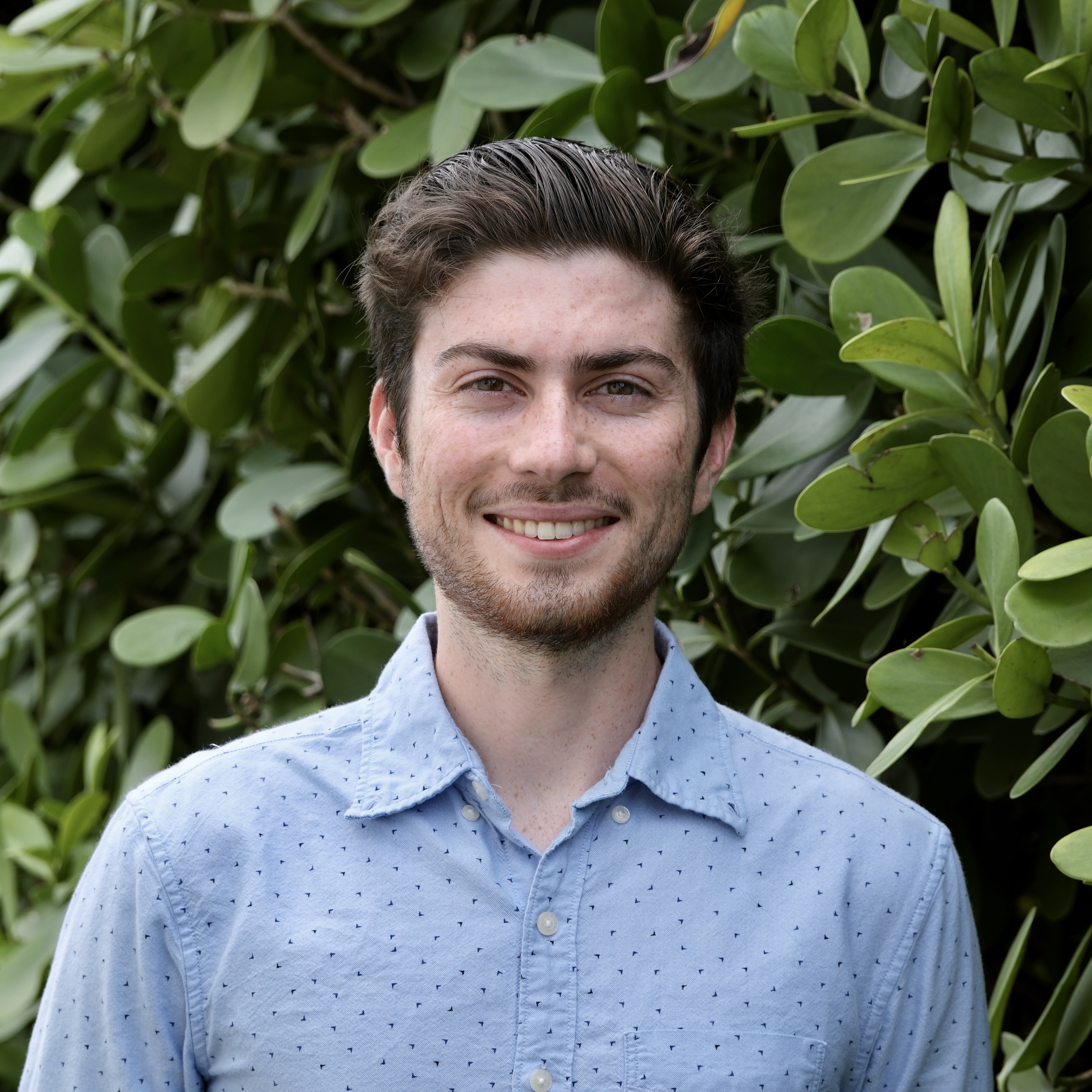
Noah Frade
Noah is a Miami native with a passion for nature and conservation. His hobbies range from birding and botanizing to snorkeling and microfishing. He is also an avid user of citizen science databases eBird and iNaturalist, where he contributes his photography and observations.
He received his B.S. in Natural Resource Conservation from the University of Florida in 2021. Since then, he has been employed by Fairchild Tropical Botanic Garden where he serves as a project field biologist for their native plant conservation program. In 2023, he started his M.S. in Environmental Studies at FIU as a member of the Rockwell Lab. His thesis project explores habitat selection by migratory songbirds in urban forest fragments in South Florida.
Websites:
iNaturalist: https://www.inaturalist.org/people/noaboa
Flickr photography: https://www.flickr.com/photos/noahfradephotography/
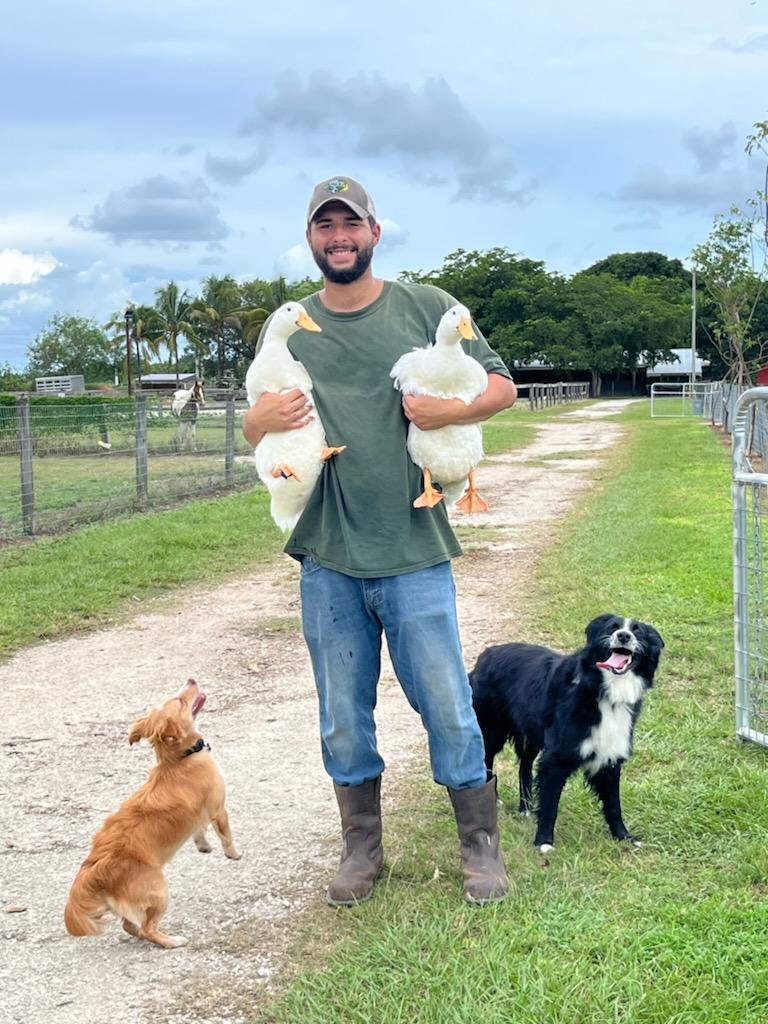
Joseph Navarro
Joseph received his bachelor’s degree in Hispanic Studies at Wheaton College (MA) and an associate’s degree in Horticulture from North Shore Community College in Massachusetts. As he was receiving his Horticulture degree, he worked in greenhouse hydroponic farming in Massachusetts and eventually moved from Boston to Miami to begin working on a local educational farm dedicated to integrated livestock silvopasture management, fruit tree, and regenerative market farming. Afterwards, in 2021, he enrolled in the Agroecology master’s program with Dr. Krishnaswamy Jayachandran and Dr. Cara Rockwell as a Research Assistant.
His thesis research involves the study of Indigenous agroforestry methods as a solution to food insecurity, soil health, and mitigate erosion problems in his native Puerto Rico analyzing the symbiotic relationship between Capsicum chinense and Ipomoea batatas, and fruit trees in an integrated agroforestry system documented prior to the arrival of Columbus. His research is currently being funded by the Southern SARE USDA Graduate Student Research Grant. His interests include sustainable agroforestry, Caribbean flora & fauna, integrated silvopasture, tropical fruits, permaculture, and soil microbial interactions.
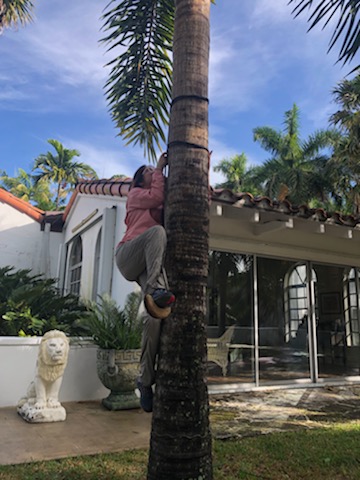
Nisrine Toury
Nisrine received her Bachelor of Science in Biological Sciences from Florida International University in 2020. She participated in the Million Orchid Project at Fairchild Tropical Botanic Garden as an intern while an undergraduate student, where she had the opportunity to learn about orchid biology, working in Fairchild’s micropropagation lab and traveling to public schools across Miami-Dade County with the Million Orchid Project’s STEMLab, where she taught middle school students about Florida’s rare and endangered native orchids. During her senior year, she was chosen by the FIU Tropical Conservation Internship program to intern at Montgomery Botanical Center, where she worked closely with palm biologist Dr. Noblick on Attalea palm leaf anatomy and Dr. Tucker Lima on Attalea palm reproductive biology. Additionally, she has worked as a research volunteer for Dr. Suzanne Koptur’s Plant Ecology lab, where she has collaborated with PhD student Blaire Kleiman to begin creating a database of South Florida pollen.
She has also worked on the Food Forest Project with Dr. Rockwell as a research field assistant collecting vegetation and insect data. Additionally, Nisrine created an ArcGIS StoryMap with Dr. Rockwell and Dr. Ter-Ghazaryan as part of a research project on the logging and environmental history of the Pine Rocklands in South Florida in collaboration with the CASE Education Outreach and the FIU GIS Center. As part of the research collaboration, she also helped to create an interactive middle school lab curriculum and presented the lab with the CASE Education Outreach team at several public elementary and middle schools across Miami-Dade County.
More recently, she worked with graduate student Érika R. Guimarães and again with Dr. Rockwell and Dr. Ter-Ghazaryan on another ArcGIS StoryMap centered around Érika’s food forest research in Florida. Continuing to delve into her passion for biology and science education and outreach, Nisrine received a Florida teaching certification, which allows her to teach biology and other sciences at the 6th-12th grade levels.
https://storymaps.arcgis.com/stories/e4be54329f8e4acf872339f8ddb6f1c0
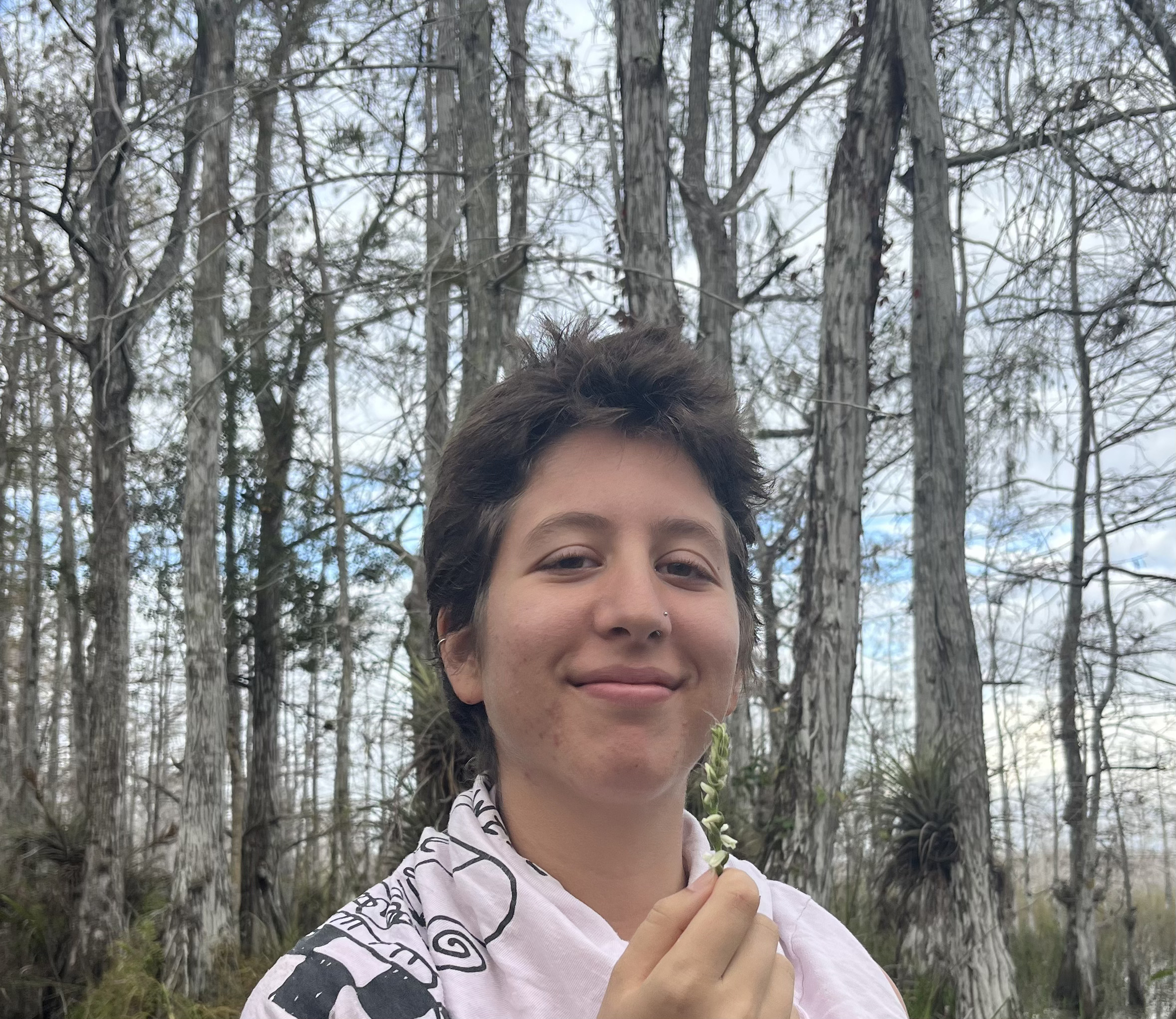
Margarita Sitterson
Margarita sees herself as a student of stewardship in myriad forms. As such, she finds herself in relationship with artists, plant people, and scholars from all walks of life who make up South Florida's vibrant cultural ecosystem. Currently she is focused on nurturing community connections for the flourishing of people and plants alike. She is especially fond of mamey sapote and mangroves.
Instagram : @extra_basil & @clearingspacecollective
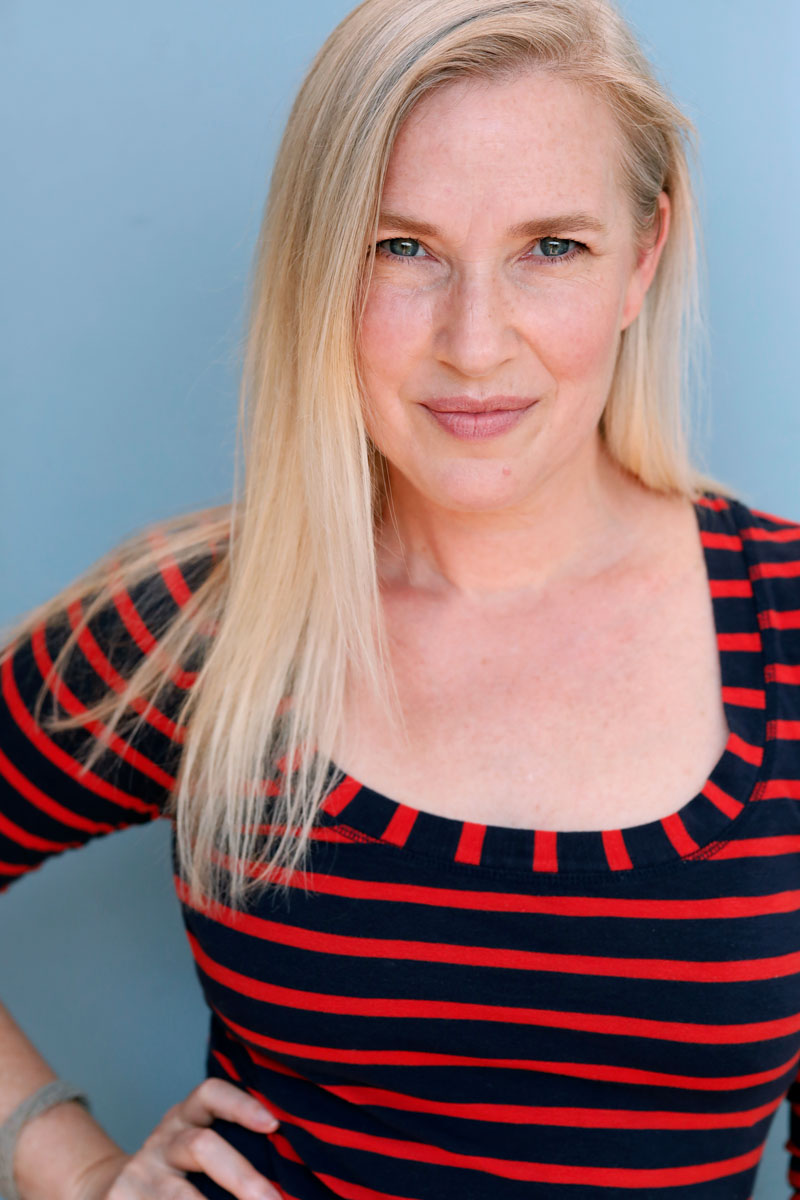
Katrina Morris
As an Administrative Assistant for the NAPECA grant supporting backyard and community gardens, Katrina brings a passion for fostering sustainable and vibrant communities through grassroots initiatives.
Katrina brings a diverse background and over 20 years of experience in web development to the table. In addition to her technical skills, Katrina is an accomplished actor and filmmaker, with a creative spirit that fuels her dedication to storytelling and community engagement. Whether crafting compelling narratives or coordinating grant activities, she brings a unique perspective and a collaborative mindset to every project.
Her extensive experience in web development has honed her problem-solving abilities and attention to detail, allowing her to effectively manage administrative tasks and support the logistical needs of the program. From website maintenance to grant reporting, Katrina is committed to ensuring the smooth operation of initiatives and maximizing their impact within communities.
Katrina is also currently developing her own backyard food forest at her home in Coconut Grove. This personal project reflects her commitment to environmental stewardship and community resilience, further enriching her understanding of sustainable gardening practices.
Former Team Members
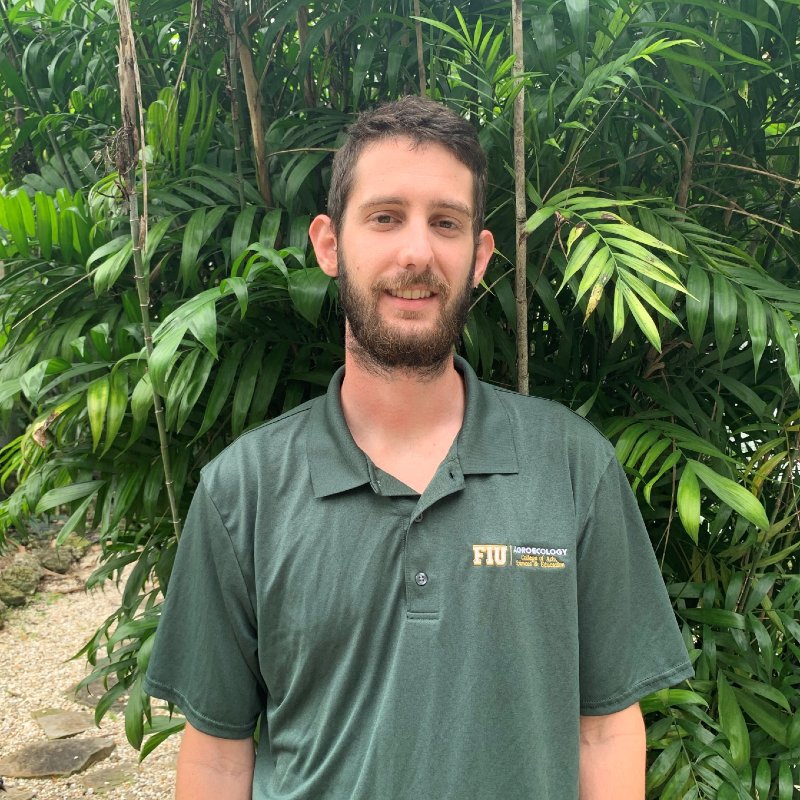
Sean Brown
Sean was born and raised in subtropical South Florida. Many of his weekends were spent in the Florida Keys boating and fishing with his family. He graduated from Coral Reef Senior Magnet High School in the Academy of Agricultural Sciences in 2013. He continued my education at Miami Dade College and attained his Associate of Arts degree in Biology in 2016. He graduated from FIU with a Bachelor of Arts degree in Sustainability abd the Environment with a certificate in Agroecology in 2018.
In his senior year at FIU, he interned at the Subtropical Horticulture Research Station where he was later employed for two years in the Entomology department as a biological aide. He was tasked with maintaining a fruit fly orchard, harvesting fruit, and repairing irrigation issues while assisting with insect trapping experiments in the field and on station. His lab experience at the station included working directly with sterilized flies that were used for analysis along with preparing supplies and reagents to maintain their growth cycle. While there he was able to score insects caught in the field and observe them up close and had the privilege of working on Electroantennography (EAG) experiments. He also assisted in various other projects on station including uploading data into a database for tropical fruits such as mango and guava, documenting the physical characteristics of different species, as well as working on maintaining the health of sugar-cane collections.
He is now working with FIU as a temporary research field assistant, helping to catch and identify insects for the Food Forest Project.
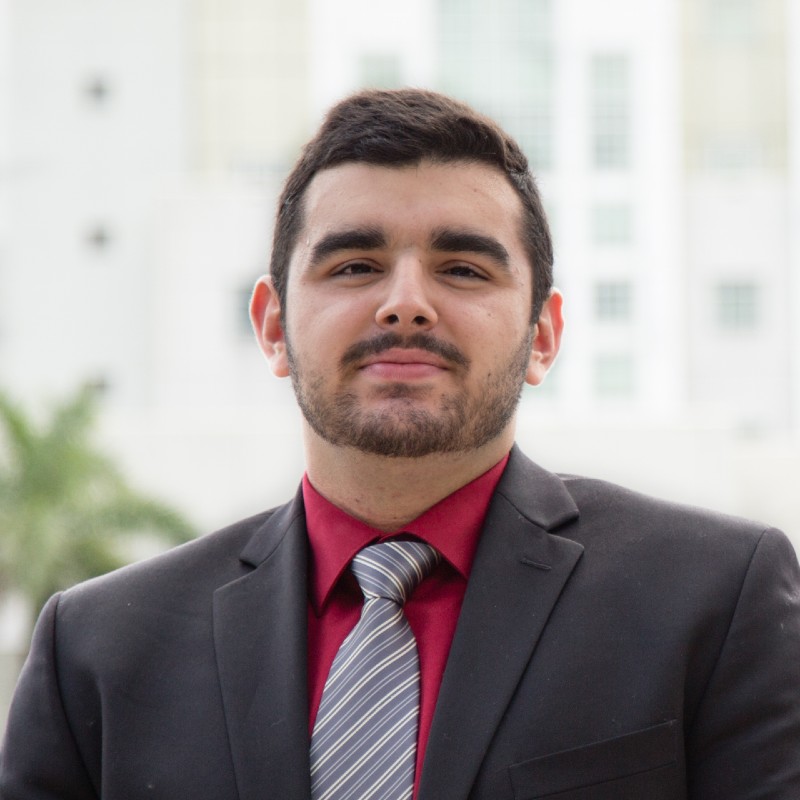
Alex Crow
Alex graduated with a B.S. in Environmental Studies in 2019, along with certificates in Agroecology and Biodiversity Conservation and Management. Born and raised in Miami, he loves the unique blend of culture, people, food, and environments that South Florida has to offer. He has a passion for the Everglades, and his research interests include native plant ecology, tropical and subtropical botany and forestry, and methods of controlling undesirable plants. Alex worked in the Miami-Dade County Public School food forests in 2018, when he was conducting a project for his Agroecology internship. He later worked as a Research Field Assistant on the EPA-funded project (“Environmental education in urban food forests: measuring students’ knowledge and attitudes about the natural sciences in a participatory setting”) with Dr. Rockwell. He has also worked directly with The Education Fund as a food forest intern. Alex has gone on to serve as a Field Crew Leader for the Institute for Regional Conservation, applying various methods to restore imperiled ecosystems in South Florida. He now serves as a botanist for the Miccosukee Tribe of Indians of Florida, learning how to implement traditional knowledge with scientific principles to best serve the tribe’s needs.
Linkedin: www.linkedin.com/in/alex-crow-92573b114
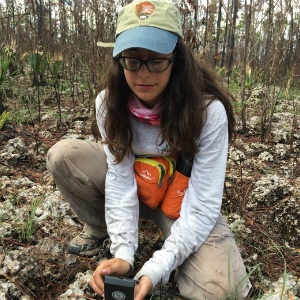
Lydia Cuni
In January 2020, Lydia completed a master's project on the topic of pine rockland-hardwood hammock ecotones, the transition zone between two heavily fragmented and endangered ecosystems in Miami, Florida. Through an intensive field data collection of plant species occurrence and abundances, and various abiotic factors including fire return intervals, she discovered that intact ecotones in Long Pine Key Everglades National Park harbor elevated species richness and diversity values, as well as a different composition from either the pine rockland or hardwood hammock. She determined that the pine rockland-hardwood hammock ecotone is a vital and specialized habitat that merits further management and conservation, while also identifying some methods for the management and restoration of other pine rockland-hardwood hammock ecotone sites outside of Long Pine Key. Some rare Miami plants prefer the sunny edges of the hardwood hammock forests. Lydia is currently a field biologist with the Conservation Team at Fairchild Tropical Botanic Garden where she maps and monitors locally rare plants in the field and gets to work closely with fellow conservationists, land managers, and restoration practitioners.
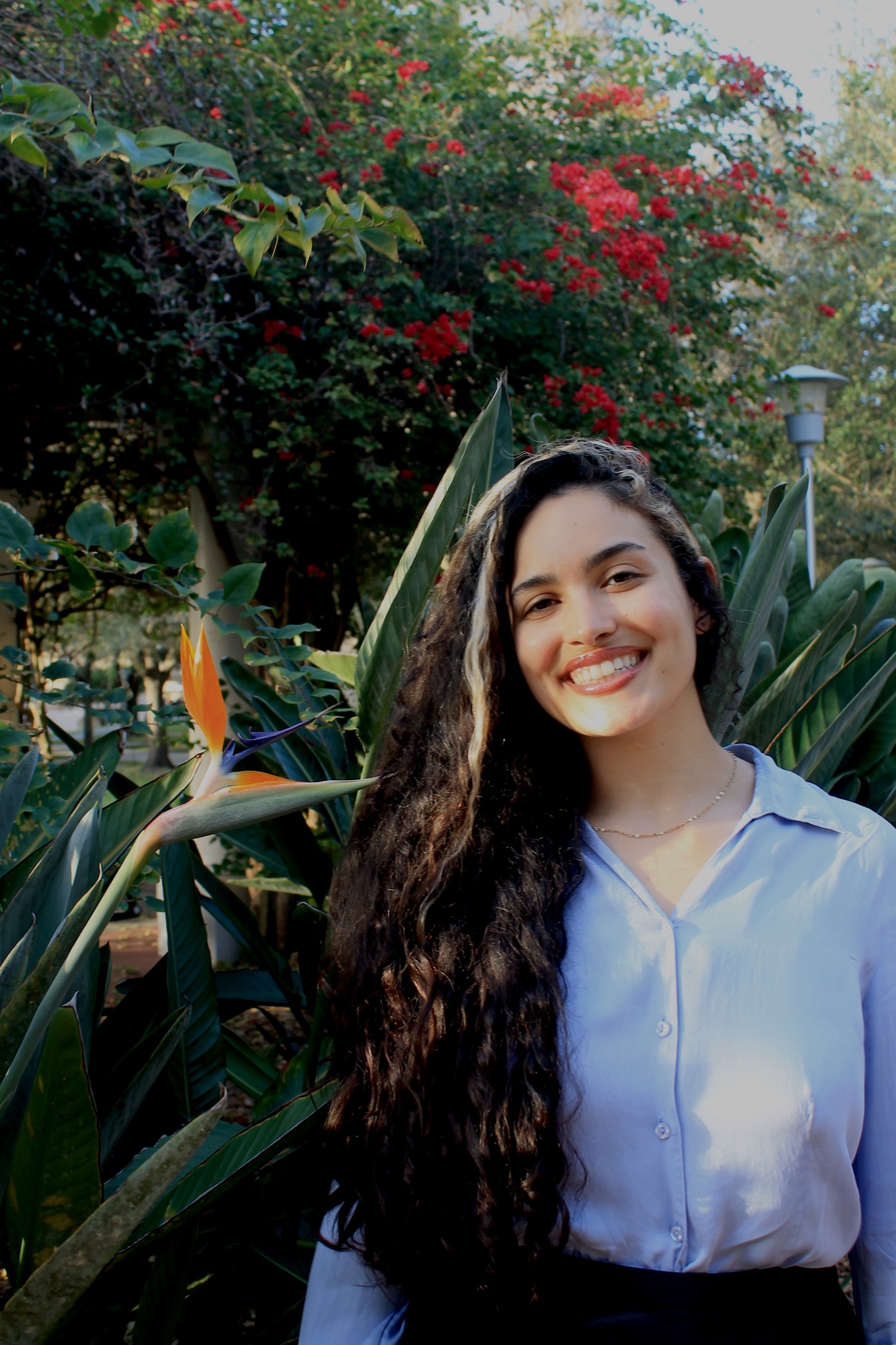
Barbara Herrera
Barbara Herrera was born in La Habana, Cuba and was raised by two parents who were often reliant on the medicinal and edible uses of plants. Having this cultural insight, Barbara decided to pursue a bachelor's at Florida International University where she worked with Dr. Cara Rockwell and gained a BS in Environmental and Agricultural Studies. During this time Barbara worked on a research project involving the overlap of medicinal plants found in ethnically inclined Botanicas around Miami, Florida. This research was under the mentorship of research assistant and Dr. Rockwell and curator Dr. Alan Franck.
Through Barbara’s connection with the Education Fund and with the Kampong Botanical Garden she has maintained her ties to Dr. Rockwell as well as her goals in becoming an ethnobotanical Caribbeanist. Through the completion of the Tropical Botany course offered by The Kampong and the International Center for Tropical Botany in 2022, Barbara gained foundational botanical knowledge. Wanting to connect plant sciences to people and culture, Barbara pursued a Master’s degree in Latin American and Caribbean Studies at the University of South Florida to better understand the communities she intends to study. During her thesis she has become acquainted with ethnographic methods vital for the success of ethnobotanical research as well as the historical awareness of the Caribbean and LATAM. Having benefited from her previous experiences, Barbara has been accepted to the University of Florida’s Anthropology program under the guidance of Dr. John Richard Stepp with the intent to do research the ethnobotany of Cuba and create educational programs for the children and adults of the communities in Matanzas, Cuba.
Open to the potentiality of the future, Barbara is determined to seek out a career that will be centered around the proliferation of culturally relevant plant knowledge aimed for younger generations.
Contact info – barbaradh97@gmail.com
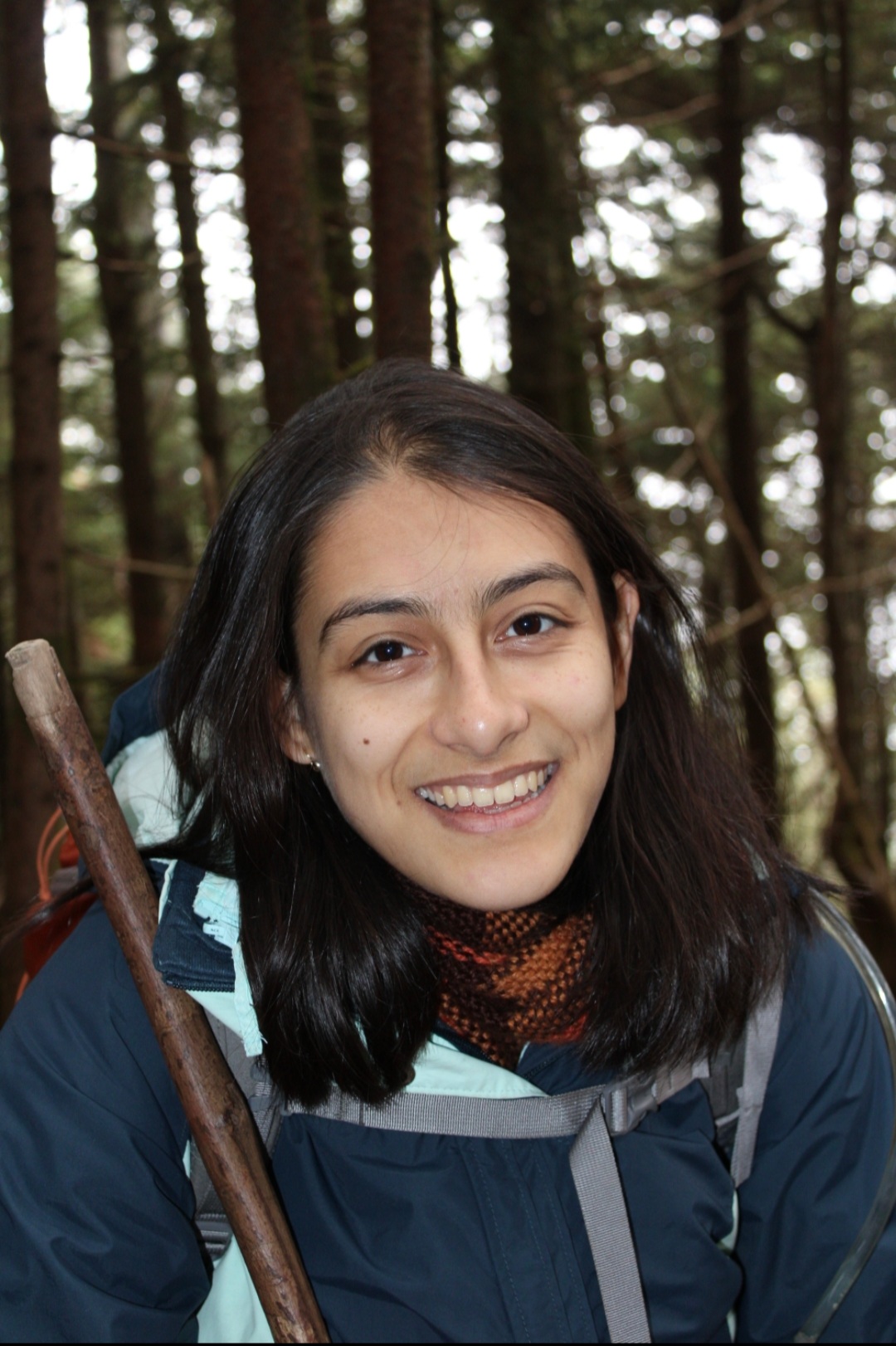
Natalia Herrera-Blitman
Natalia Herrera-Blitman graduated with her Bachelor’s degree in Biological Sciences from FIU in 2021. During her undergraduate career, she worked on and off under the direction of Dr. Cara Rockwell for various field data collection projects, including the Coastal Prairie Hammock project (with Dr. Hong Liu) and the Big Cypress post-logging project (with Dr. Paulo Olivas). She has worked as a student intern at Fairchild Tropical Botanic Garden under the mentorship of Jennifer Possley. She has also worked as a county intern in Broward County Parks and Recreation, at Long Key Natural Area & Nature Center, under the mentorship of Kelli Whitney.
Most recently, Natalia completed an 8-month internship with the US Forest Service National Forests in North Carolina, where she was a Botanist Resource Assistant.
Natalia has many interests within the field of ecology and botany, specifically, forest disturbance ecology, for which she is currently in the pursuit of gaining knowledge and experience.
She hopes to pursue graduate school soon, to study environmental science and ecology.
When she's not studying the forests, you can find her staring at them in awe.
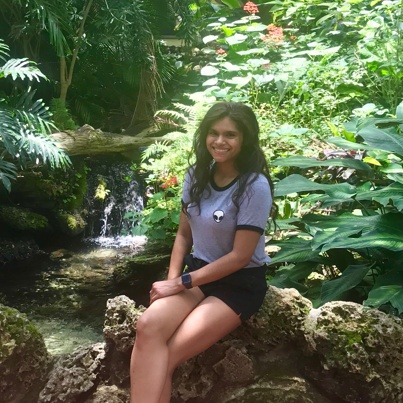
Laura McCoy
Laura received her bachelor's degree in Liberal Studies and acquired a passion for environmental law throughout the course of her undergraduate degree. As a student she served as the Student Executive Board Advisor of Tau Sigma National Honor Society, was a Global Medallion Student, and served a Peace Corps Prep Volunteer.
In May of 2017, Laura was chosen by FIU's School of Environment, Arts, and Society as one of twenty Tropical Conservation research interns for the Summer semester. As a part of her internship project she worked alongside Dr. Rockwell and the Miami Education Fund to document the importance and impact of having fresh accessible vegetation. Throughout this internship, she visited seven different elementary schools around South Florida to determine whether they were categorized as “food deserts” per the FDA’s definition. She then recorded the significance of their “food forests” by mapping perimeters and species with a global positioning system. This internship experience taught her the importance of community environmental efficiency and sustainability. Laura now works at a law firm to enrich her professional skills and aspires to attend the University of Florida’s Levin College of Law in the Fall of 2019 to pursue a Juris Doctorate with a focus on Environmental Policy.
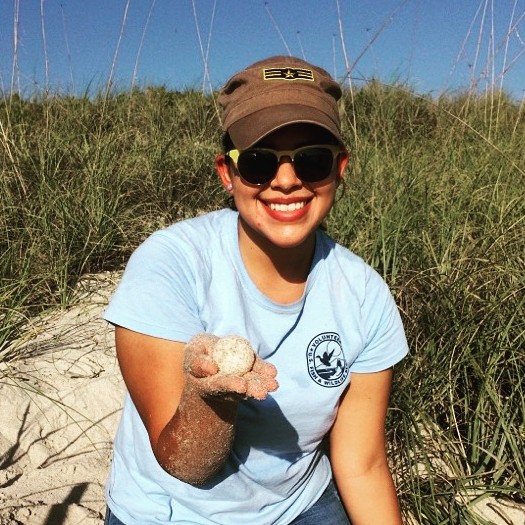
Jennifer Perez
Jennifer received her bachelor's degree in Sustainability and the Environment while also earning certificates in Agroecology, Film, Global Communications and Environmental Studies.
She recently completed a project assisting Dr. Rockwell develop a comprehensive food forest catalog within South Florida schools. She has also worked as a biological intern with the Greening Youth Foundation at Merritt Island National Wildlife Refuge where she surveyed sea turtle nests and scrub jay habitats. Currently, she is starting a new internship through the Latino Heritage Internship Program with the National Parks Service at the United States Department of the Interior in Washington D.C. Here, she will be assisting with community outreach and developing a stronger media presence for the Junior Ranger program. One of Jennifer's goals is to utilize her experience with digital media and environmental studies to spread positive messages of our nation's natural resources through media exposure.
